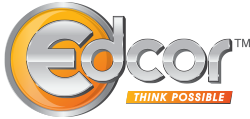Let me make it clear upfront that I have nothing against traditional degrees; in fact, I have a Bachelor’s degree followed by three Master’s degrees. Two of which I pursued while working full-time. However, this was when I was in my twenties. My recent educational pursuits include short-term alternate digital credentials (ADC), also called micro-credentials, and stackable certificates. Reasons I went for them include I could update my knowledge on the contemporary advances in my field in a short-time at my own pace, they were fully online so I could manage the workload of being a working professional and the primary caregiver of my child, they didn’t break my bank, they were offered by elite institutes of Higher Ed and are recognized by Corporate America. Unsurprisingly, this is how Millennials and Gen Z are learning – yes the same populations that are going to form 75% of the American workforce by the year 2025. With this post, I intend to bring our corporate readers closer to the realities of the shifting landscape of Higher Ed and how to navigate the changes with adaptations to Tuition Assistance policies.
The Evolved Field of Education
Ever since the start of the pandemic, the field of education saw a drastic and overnight shift to online education. All learning institutions, including traditional schools, adopted this shift and followed the learning curve that came with digitalization. The pandemic is long over, however, the conveniences it bestowed upon learners and educators still prevail. The educational landscape has become progressively digitalized and technology is an integral part of every classroom. Digital tools and resources have offered educators newer ways to engage students leading to superior learning experiences. There has been a major shift towards personalized learning; providing learners with the autonomy and flexibility to learn in ways that suit them best. Additionally, there is a growing emphasis on social-emotional learning, as educators recognize the importance of supporting students’ emotional well-being and social development to foster academic success. Other trends include a focus on equity and inclusion, the integration of real-world experiences into the curriculum, and an increased emphasis on interdisciplinary learning.
Working adult learners are emerging as a dominant population and there is a significant shift toward short-term and online education for this population given that they juggle work-life and family life alongside their educational pursuits. As education continues to evolve, it is imperative for organizations to stay up-to-date on these trends and continue to adapt their practices to best serve their workforce.
The Shift to Short-Term Learning Solutions
In recent years, a heavy shift towards short-term learning solutions as an alternative to traditional 4-year degrees has been observed. The trend is driven by the need to upskill the workforce quickly with specialized skills in response to the demands of the job role and the need for individuals to continuously adapt and upskill throughout their careers. These programs are often focused on developing practical skills in high-demand fields such as technology, healthcare, and business. Short-term learning solutions also cater to the educational needs of those who have a degree and those who cannot commit to a 4-year degree right away. Building credits through stackable certificate programs is a great way for the latter to build towards a degree. As the economy becomes more competitive, a workforce that can quickly acquire new skills and knowledge is better positioned to succeed.
Popular Short-Term Learning Solutions
Short-term learning solutions include certificate programs, certifications, boot camps, and online courses that can be completed in a matter of weeks or months to upskill quickly and efficiently.
- Certificates typically require the completion of a series of courses and may be offered by universities or online learning platforms. These can be credit-bearing and stackable and based on where they are earned from, accepted by institutes of higher learning in the U.S. as credit towards a degree.
- Certifications, on the other hand, are often industry-specific and demonstrate that an individual has met certain standards of knowledge and competency.
- Micro-credentials are skill-oriented or competency-based short-term courses that are often flexible and adapt to the student’s style of learning. The skills learned are validated through assessments and evaluations and lead to certificates. Although not all micro-credentials are digital, a popular term called alternative digital credentials (ADC) has been used to define micro-credentials that earn digital certificates and badges. They are stackable into degrees when the learner is ready for the next step – reducing time and effort hours.
- Boot camps provide intensive training in a specific skill set, and are growing popular, especially in the technology and project management realms.
What should organizations do?
As we move towards a more dynamic and fast-paced work environment, organizations must embrace these trends and adapt to the changing learning needs of the workforce.
Organizations play a pivotal role in supporting the professional development of their workforce. Including short-term learning solutions in Tuition Assistance policies, aligns these policies with the contemporary needs of employees and makes the policy holistic and inclusive. It facilitates a culture of continuous learning, allowing individuals to stay ahead of the competition and contribute more effectively to the organization’s success. This also helps recruit and retain top-tier talent because employees nowadays are looking to stick to employers who are invested in their professional and financial well-being.
Reach out to Edcor if you are thinking about an inclusive policy that caters to the needs of your larger workforce. We understand that such progress is seldom abrupt, but rather a steady, progressive, and intricate process that occurs over a period. We will be there with you every step of the way.
You can also download Edcor’s whitepaper on ‘Underutilized to Optimized Guide to Maximizing Usage of Your Education Benefits’ for a stepwise guide on enhancing uptake of your Education benefits.

Edcor is a woman-owned business and is the benchmark in education benefits administration. For 40+ years, our customized service and solutions have allowed Fortune 500 Clients to use education benefits programs for employee recruiting, retention, and development. Reach out to us now for zero-commitment consultation on implementing an education benefits program.
Spardha Khera, Edcor



